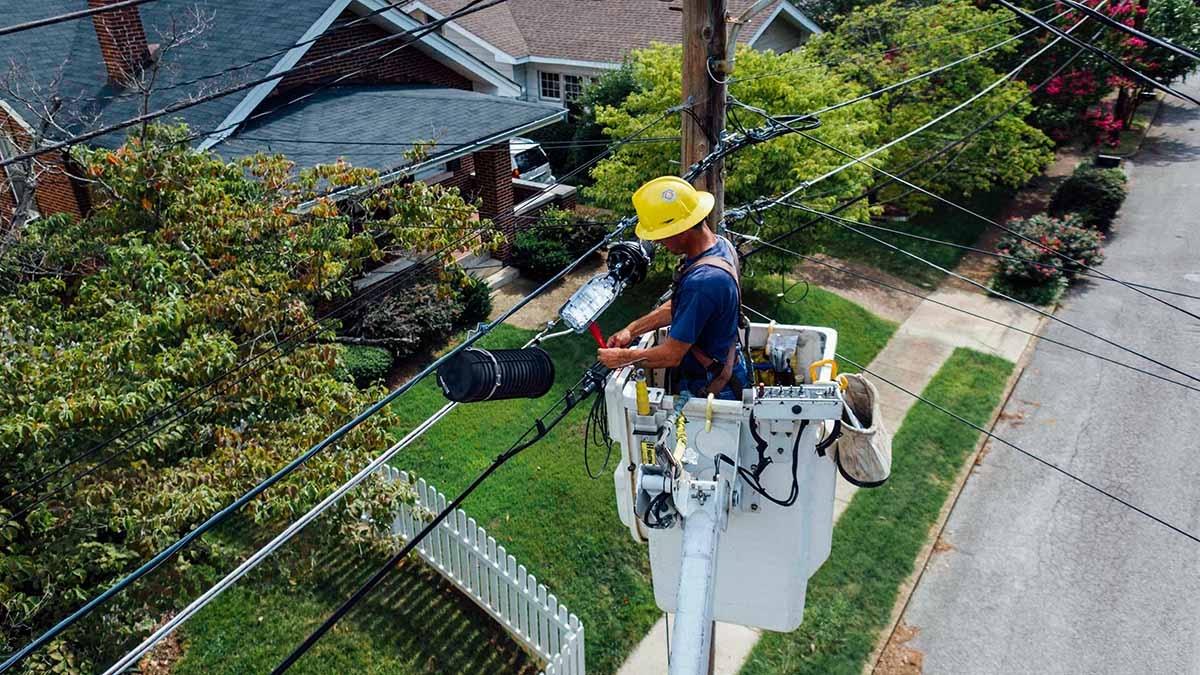Shawn Johnson, owner of Prestige Electric in Virginia Beach, began investigating skilled trades early in life. He recalled taking a shop class and working with table saws as early as sixth grade. “I don’t know if they even have shop classes anymore,” he said.
In grades 10-12 he took vo-tech classes which consisted of HVAC training, and he worked with a company that offered services both in HVAC and electrical. That led him to pursue his journeyman’s electrician license through a two-year program at Tidewater Community College.
After getting his master’s electrician license and completing residential work for friends and family, the word of his services spread and his wife convinced him to start his own business. He has built a satisfying career, and said he wishes more students would be exposed to skilled trades at an early age.
“We are having a difficult time to find qualified people to fill the position to be a technician or a journeyman electrician for our company. I think it goes back to high school pushing those vocational (classes), HVAC, the electrical side of that. You have to start that early on. I’d like to see more things in high school and right after high school for these kids.”
As older workers retire, many industries are having trouble finding qualified candidates to fill skilled career positions. “We’ve got a group of guys that are just A-players—HVAC, a tile guy, a sheetrock gentleman and a plumber—all five trades are looking for people. They cannot find enough people to fill the spots for work,“ he explained. ”It’s all across the board, it’s not just my field, it’s every field.”
He said part of the problem is the way trades are branded as “blue collar” jobs that have a negative stigma attached. “It’s going to be telling these kids that being an electrician, a plumber, or a tile guy is not bad,” he said. “It’s not looked down upon; everybody needs them.”
And today’s students are often not aware of the benefits of a skilled career or how to go about pursuing one. One advantage of working in a trade, Johnson said, is that much of your training takes place on the job. Companies often pay for their employees to go to school because they want them to have a solid foundation of skills.
His company, for example, starts new workers as helpers before they advance to the role of apprentice through training, and they enjoy several perks along the way. “We pay for their clothing,” he explained. “We pay for 50 percent of their healthcare and for their classes at TCC. We try to give back to our guys. We take care of our employees very well. We’re here to push people so they can be the best that they possibly can.”
Many students also do not realize that some training programs pay you while you learn, and they are usually more affordable than a traditional college degree. “There are two-year programs that you will not have a hefty student loan when you get out of it,” he said. “You can go immediately to work.”
He believes industries like his are starting to realize that they will need to meet today’s students on the platforms where they are and find new ways of promoting the benefits of working in skilled trades. “The light bulb is coming on, we just have to do something about it now. We have to get that information out to these kids,” he said. “To me a skilled trade is the best way not to have a huge debt over your head for the rest of your life.“
Skilled trades also provide workers with skills they can use anywhere in the world--and even in economic downturns. Unlike industries like retail or hospitality that are influenced by the season or by regional economic stability, jobs for those working in skilled trades typically remain steady.
Shawn was featured last year on an episode of HearSay with Cathy Lewis. Check it out to hear more from him and others who have found career success in skilled trades.
If you are interested in learning about skilled careers, visit the Resources page of our website to find listings of local apprenticeship programs and training opportunities.



